KATHMANDU: Economists and analysts have emphasized on boosting productivity to increase the country’s economy.
Participating at an interaction organized jointly by Khabarhub and Institute for Strategic and Socio-Economic Research at the Pavilion Hall to analyze the government’s performance on economic sector in the last one year in Kathmandu, they suggested the government to address this issue to avoid stagnant economy.
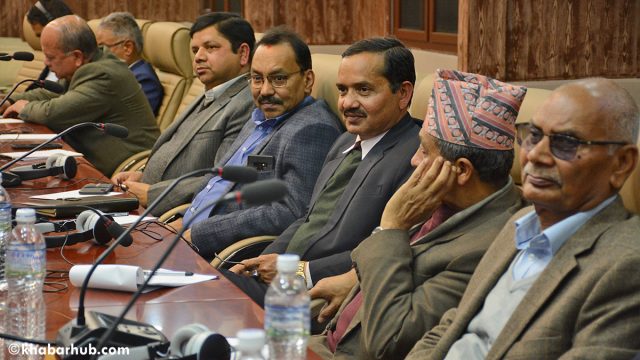
Former Minister of Finance, Dr. Prakash Saran Mahat said the government’s performance on economic sector has been discouraging. He said people’s aspirations have been shattered since the government failed to attract foreign investment in the country. “Foreign Direct Investment (FDI) has been decreased by 50 percent,” Dr. Mahat said citing available data.
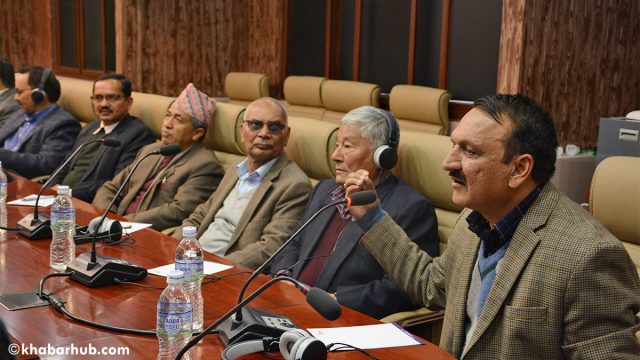
He criticized the government for failing to control the price hike, control corruption, and failing to create employment opportunities despite assurances and publicity.
“The entire scenario is negative,” he said citing the country’s trade deficit with other countries.
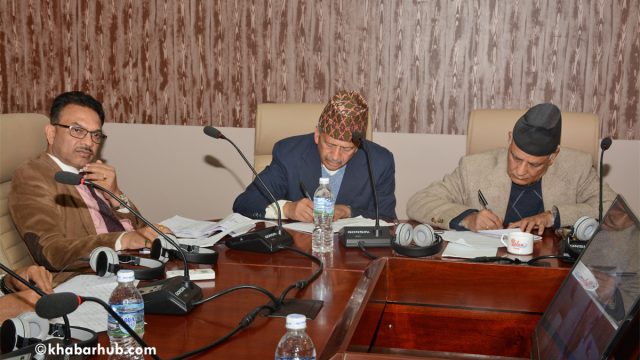
Analyst Bharat Dahal queried as what is barring the government from bringing in foreign investment. He termed the government’s performance as ‘dissatisfactory’ in all sectors.
Advisor to the Ministry of Finance, Dr. Ram Saran Kharel, however, defended the government saying that the foundation has been created for sustainable economic growth in the last one year. “Tax system has been made progressive,” he said adding, “There is no point to be disappointed.”
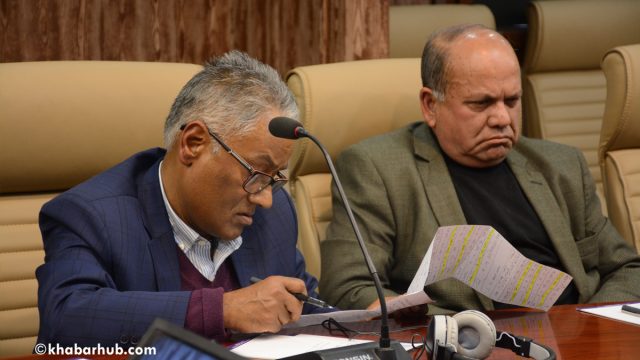
Dr. Dwarika Thapa expressed mixed reactions over the government’s performance in the economic sector saying that it would be too early to judge the government. He, however, suggested the government towards working to carry out tasks that would increase the country’s economy.
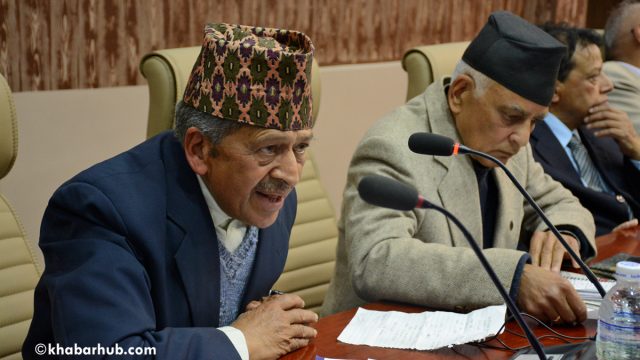
Likewise, stating that the government has brought some encouraging programs such as the Prime Minister Employment Program and Social Security Scheme, Dr. Govinda Bahadur Thapa said the government should work towards increasing the productivity, and bring out some programs that will have direct impact on the people. “Increasing the tax rate is not the need of the hour,” he maintained.
DUBAI: IMF Managing Director Christine Lagarde said, “Unfortunately, the region has yet to fully recover from the global financial crisis and other big economic dislocations over the past decade”. “Among oil importers, (economic) growth has picked up, but it is still below pre-crisis levels,” she told the Arab Fiscal Forum in Dubai.Lagarde said public debt among Arab oil importing nations had increased from 64 percent to 85 percent of Gross Domestic Product in the decade since 2008. Nearly half of these countries now have public debt of over 90 percent of GDP, she said. Public debt has rapidly increased in many Arab countries since the 2008 global financial crisis, due to persistently high budget deficits, the International Monetary Fund warned Saturday.
Public debt among oil exporters — including the six-nation Gulf Cooperation Council — rose from 13 percent of GDP to 33 percent of GDP, accelerated by the crash in oil prices around five years ago, Lagarde said. “The oil exporters have not fully recovered from the dramatic oil price shock of 2014,” she said.
“Modest growth continues, but the outlook is highly uncertain.” Lagarde said oil producing countries should look to renewable energy in the coming decades, in line with the Paris Agreement on climate change, which stipulates a reduction in greenhouse emissions.
The IMF last month lowered its economic growth forecasts for Saudi Arabia — the world’s top crude exporter — and the wider Middle East and North Africa region due to a renewed fall in oil prices, low output and geopolitical tensions.
Lagarde welcomed both spending and revenue reforms, including the introduction of a value added-tax (VAT) and excise duty by Saudi Arabia and the United Arab Emirates. But she urged more reforms, anti-corruption measures and transparency. “The economic path ahead for the region is challenging,” she added. (Agence France-Presse)
General Motors Co said on Saturday it is negotiating “feasibility conditions” to invest 10 billion reais ($2.73 billion) in Brazil from 2020 to 2024, after having warned last month that new investments would depend on returning to profit. The automaker also said it is completing an investment plan of 13 billion reais between 2014 and 2019.
“As market leaders, we are taking on the responsibility of facing the challenges of competitiveness that the industry.
Valor reported that GM would invest in its product line until 2022, and then the following year, the company would start to enjoy tax rebates. Valor, which also reported that GM’s losses in Brazil last year totaled 1 billion reais despite being the country’s market leader, did not specify the exact amount GM would expect to generate in tax incentives.
(REUTERS)